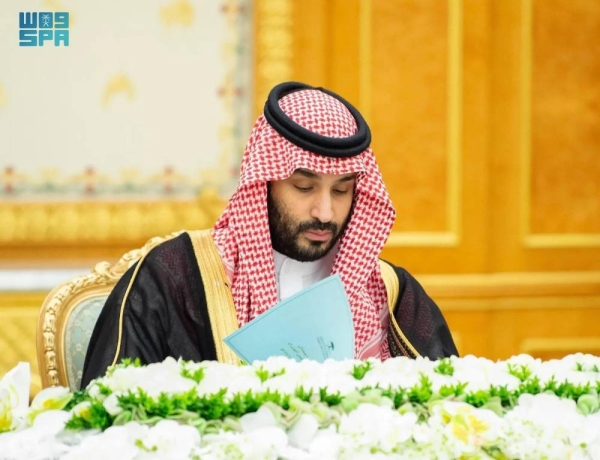The Council of Ministers in Saudi Arabia recently announced its commitment to providing monthly financial support to Palestinians and medical and relief aid to the Lebanese people in order to address humanitarian needs in the Gaza Strip and Lebanon. This decision was made during the weekly session of the Cabinet, chaired by Crown Prince and Prime Minister Mohammed bin Salman in Riyadh. The Cabinet discussed various regional and international developments, and highlighted the Kingdom’s principles and positions on Arab issues, international peace and security, and the establishment of an independent Palestinian State based on the 1967 borders. The Council also called for an immediate cessation of hostilities and violations of international law.
The Cabinet expressed support for the International Alliance for the Implementation of the Two-State Solution, a proposal put forward by Saudi Arabia in partnership with the Joint Arab-Islamic Ministerial Committee, Norway, and the European Union. The Kingdom reiterated its commitment to the establishment of an independent Palestinian State with East Jerusalem as its capital. The Council also called for reforms to the UN Security Council to enhance its credibility and efficiency in addressing global conflicts, crises, and challenges. The Kingdom hopes for active international participation in the upcoming UNCCD COP16 in Riyadh in December to address environmental challenges.
On a domestic level, the Cabinet praised the launch of the Riyadh Foundation by the Crown Prince, which aims to support and develop institutional and social work in the Kingdom. The Council also reviewed the Pre-Budget Statement for Fiscal Year 2025, emphasizing the government’s focus on essential services for citizens and residents, as well as strategic projects to promote economic growth and sustainable development. Additionally, the Cabinet expressed gratitude to teachers on World Teachers’ Day, recognizing their important role in the educational sector and in building skills and capabilities in the youth.
Several decisions were taken by the Council of Ministers, including the approval of organizational regulations for temporary work visas for Hajj and Umrah services, and amendments to the Precious Metals and Gemstones Law. The Council also authorized ministers to discuss and sign agreements with Romania, Maldives, Egypt, and Kosovo in areas such as general cooperation, fisheries, investments, and customs matters. Furthermore, the Cabinet approved a memorandum of understanding for technical and scientific geological cooperation with the Kuwait Geoscience Society.
Overall, the recent decisions and discussions in the Council of Ministers reflect Saudi Arabia’s commitment to addressing humanitarian crises, promoting peace and security, supporting environmental initiatives, and furthering international cooperation. The Kingdom’s efforts to combat transnational corruption, develop institutional and social work, and promote education and skills development demonstrate its dedication to progress and sustainable development at both domestic and international levels. The Council of Ministers continues to play a key role in shaping Saudi Arabia’s policies and priorities in line with its vision for the future.










